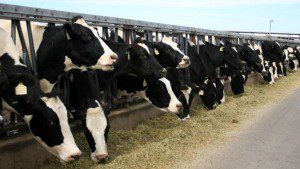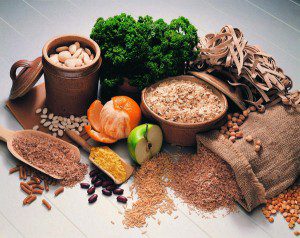This article is part of Patheos Muslim’s and Altmuslim’s Hajj 2014 reflection series, which is focusing on the good, the difficult and everything in between about the holy days of Dhul Hijjah, the Hajj pilgrimage and Eid ul Adha, the second major holiday for Muslims.
By Bina Ahmad and Fatima Ashraf
Eid-ul-Adha is a very important holiday for 1.3 billion Muslims around the globe. It marks the end of the annual Hajj pilgrimage as well as commemorates the story of Prophet Ibrahim’s (may peace be upon him) sacrifice. A traditional animal sacrifice, the Qurbani, has been an integral part of this holiday, with meat being shared between friends, family and those in need. But can there be an alternative to the traditional animal sacrifice? And can those alternatives still celebrate the spirit of Hajj, commemorate the story of Ibrahim and fulfill our purpose — faith in and obedience to God — all in a manner of pure love towards all of creation.
The story of Prophet Ibrahim’s sacrifice is a beautiful one of faith, love and mercy. Ibrahim sees a divine order in a dream to sacrifice his only son, Ismail. Years before, God ordered Ibrahim to leave Ismail, then an infant, and his mother Hagar, in the desert as a sign of faith in Him. Ibrahim’s successful obedience resulted in Ismail and Hagar finding the well of Zam Zam and other provisions they did not imagine possible.
Years later, Ibrahim finds the order of sacrifice especially difficult since he prayed so intently for a son and then had to leave this son as an infant. But Ibrahim’s faith did not waiver, nor did he force his son to comply with this order to take his life. Instead, Ibrahim explained everything to Ismail, and Ismail responded with faith in God that paralleled his father’s, “O my father, do as you are ordered, for you will find me, if Allah wills, among those who are patient.” (37:102)
When the time for sacrifice came, Ibrahim and Ismail both called out in faith, “Allahuakbar” — but the knife did not cut Ismail. Instead, a call from God came saying, “O Ibrahim, you have fulfilled the dream you saw” (37:104-105), and according to most scholars, a white sheep with big eyes and horns was sacrificed instead. According to Ibn Katheer, the purpose of Ibrahim’s trial — faith and obedience — was achieved, and God in His infinite mercy allowed father and son to remain together. Today, Qurbani is practiced as a way to remember Ibrahim’s obedience to God.
There is some level of disagreement among scholars as to the obligatory nature of Qurbani. Some believe that it is wajib and others that it is sunnah . However, there is consensus that the reason for Qurbani is to demonstrate complete submission to God, for His pleasure. “It is not their flesh nor their blood that reaches Allah; it is your piety that reaches him.” (22:37)
One of the most beautiful things about Islam is its promotion of critical thought. Muslims have been leaders of critical thinking throughout history as exemplified by their use of Qiyas, or deductive analogy, and Ijtihaad, or diligence and independent reasoning. Islam is timeless because Muslims think critically about the Quran and hadith and are able to use these texts to create solutions to new problems. As times change, new problems are inevitable. Muslims have been leaders in health, science, technology, architecture, and law precisely because our religion supports critical thinking and problem solving.
In modern times, the killing of millions upon millions of animals for food has become a big, profitable business that is no longer moral or ethical. Additionally, the meat industry requires extraordinary amounts of natural resources and results in millions of tons of waste that contribute directly to climate change. Muslims are already researching and developing alternatives to factory farms; but more can be done, especially around the time of Eid-ul-Adha when we place a large demand on the industry. We can address the industry’s problems and perhaps find alternatives to Qurbani, with critical thought.
Meat and Colonialism
The first thing to consider critically is the relationship between meat consumption and Islam. According to Richard Foltz in his book, “Animals in Islamic Traditions and Muslim Cultures,” pre-Islamic Arabs lived a pastoral-nomadic existence in a harsh desert climate. A vegetarian diet would have been difficult. Nevertheless, with the revelation of Islam and the teachings of the Prophet Muhammad, rules and restrictions were placed on eating meat, suggesting clearly that alternatives do exist and that Muslims were challenged to find these alternatives.
Muhammad (peace be upon him) is recorded as being semi-vegetarian with minimal meat consumption. As Islam traveled to different lands with different climates, the possibility of decreased meat consumption became an easy reality, if not already an existing cultural practice. With colonialism however, meat consumption rose dramatically, even in countries where this was not the norm. As Drs. Colin and Thomas Campbell assert in their book, “The China Study,” European notions that plant-based diets were for the poor and primitive, while meat-based diets were for the wealthy and civilized, lead to the incorrect construct that intelligence was tied to meat consumption– a notion that spread globally through colonialism and survived post-colonization. Even today, many Muslims link meat and wealth together, even though meat has become one of the cheapest things to buy, cheaper in many places than organic produce.
Halal and Factory Farming
The second thing to consider critically is the depth of the word halal as it applies to meat. All meat is not halal, or permissible. In “Green Deen: What Islam Teaches About Protecting the Planet,” Ibrahim Abdul-Matin discusses the conditions under which meat is considered halal. The most basic conditions are that the animal feeds on plants and is not strangled, beaten, killed by a fall, gored or killed by another animal. Then, the conditions get even more detailed.
 The slaughter of animals must not occur in front of other animals. The knife must be wiped clean and put down before using again. Conditions regarding the animal’s upbringing are also clarified. Animals are to be raised in natural conditions, eating natural foods and be respected. All of these conditions of permissibility emphasize the seriousness of animal life. Furthermore, if these conditions are not met, the meat, by most scholarly opinion, is not halal.
The slaughter of animals must not occur in front of other animals. The knife must be wiped clean and put down before using again. Conditions regarding the animal’s upbringing are also clarified. Animals are to be raised in natural conditions, eating natural foods and be respected. All of these conditions of permissibility emphasize the seriousness of animal life. Furthermore, if these conditions are not met, the meat, by most scholarly opinion, is not halal.
The factory farming industry of today is where the vast majority of all meat, including so called halal meat, comes from. The problem is that absolutely nothing related to the factory farming industry can be considered halal. The most simple investigations have uncovered that animals are fed other animals, not plants. Animals are tortured. For example, cows are burned with hot irons, dehorned and castrated without anesthesia. Animals are starved. Veal, which is derived from male calves, are deliberately raised anemic to keep their flesh pale and thus marketable as a delicacy. Animals are genetically engineered — chickens are often pumped with hormones to make them grow so quickly and unnaturally that they cannot stand on their own two feet.
Neither the basic nor the more detailed conditions of halal are met by the factory farming industry. This industry is about profit and profit alone. Factory farming maximizes agribusiness profit by minimizing space and quality of life for the animals, confining them into incredibly crowded and filthy cages. Chickens, for example, are confined to spaces smaller than your iPad with no ability to stretch their wings, often suffocating to death. This treatment is far, far from halal.
Factory Farms and the Environment
The third thing to consider critically is the environmental impact of factory farms. Islam calls upon us to be stewards of the Earth. The Prophet Muhammad (peace be upon him) said, “The world is beautiful and verdant, and verily Allah, be He exalted, has made you His stewards in it…” Factory farming is one of the planet’s most wasteful and environmentally damaging industries. It wastes and destroys water. It takes more than 2,400 gallons of water to produce one pound of meat (versus 25 gallons to produce a pound of wheat). You save more water by not eating a pound of meat than you do by not showering for six months.
Furthermore, intensive confinement of animals requires pumping antibiotics into the animal feed — otherwise the animals die from disease in these cramped conditions. Antibiotics remain in the animal’s bodies and local water sources post slaughter. Confined animals also produce tons upon tons of raw waste which leaves dangerous levels of phosphorus and nitrogen in the water supply as well.
According to the Food and Agriculture Organization of the United Nations (FAO), factory farming is also a leading cause of greenhouse gas emissions, with 37 percent of methane emissions attributable to the maintenance of factory farms. Growing feed for this incredibly large number of animals releases more than 90 million tons of C02 into the atmosphere.
The Spirit of the Tradition
The final thing to consider critically is the spirit of Eid-ul-Adha and spirit of the story of Prophets Ibrahim and Ismail (peace be upon them).
Eid marks the end of Hajj, the largest gathering of human beings on the planet. Hajj is about religious routines and rituals, and it is also about how human beings conduct themselves with one another including their impact upon the shared natural environment. Islam places great emphasis on care for humanity — which is one reason why the Eid sacrifice is divided in thirds — for the poor, for the community and for the self.
However, considering the health consequences and environmental degradation associated with meat consumption today, it makes sense to show love for our fellow humans by providing them with something other than meat, like plant-based staple foods including rice, flour, lentils and produce. These provisions not only last longer than meat, but make for healthier meals and can be more easily shared with many more people. In accordance with how the Qurbani is shared, we can think critically about the amount of plant-based foods to share, perhaps packages of weight similar to the weight of an animal that would have been sacrificed.
In the story of Prophet Ibrahim’s sacrifice, it is noted how difficult this order was for him. He showed an incredible amount of strength, dedication and faith in God and His mercy. The ultimate test of obedience was passed. It is worth thinking about whether today’s ritual of sacrifice is truly commemorating the difficulty and strength of Ibrahim’s decision. It might actually be that, in refraining from sacrifice, that we are choosing the more difficult and more observant path.
Finding meat is no longer a difficult task – the factory farming industry is all about convenience for convenience is key to generating profit. Protecting the planet and all of its creations is a difficult task and is also a way to submit to Allah –for the Earth and its dwellers are His creations. Perhaps today, taking a stand against unjust forces like colonialism and capitalism that have created the profit-driven, morally-depraved factory farming industry from which our meat comes from today, is also a powerful way to show obedience to God.
The considerations above do not take into account Muslims’ finding alternatives to factory farms for their Qurbani. The above considerations do, however, recognize that the vast majority of animals raised for food come from the factory farm system and that it’s still very difficult to know whether an animal lived a good life or not. Since the importance of an animal’s life is taken very seriously in Islam, perhaps obedience in this case is refraining from supporting an industry where animals are horribly mistreated.
Undoubtedly, this article will be received with criticism, reproach and rebuttal. All of this is fine; as Muslims, we are called upon to reason, debate and discuss until the best philosophy and practice is discovered. We are attempting to present an alternative viewpoint, one that may be marginalized, but one that is quickly becoming more relevant as times change and the practices around meat become more and more Islamically questionable.
Fatima Ashraf is a consultant working with non-profit organizations and government entities to improve programs and policies focusing on equitable health care and education. She lives in Brooklyn with her husband and two sons and is committed to raising Muslim boys who care for all of creation.
Bina Ahmad is a social justice activist, human rights and animal rights attorney, and a Pakistani Ahmadi Muslim. She was a Legal Consultant to the National Lawyers Guild (NLG) New York City Chapter during Occupy Wall Street, and was a 2012 Spring Fling Honoree for her work. She has lived and worked in Palestine with Al-Haq (the oldest Palestinian human rights NGO), and also worked with the Center for Constitutional Rights, Human Rights Watch, and Farm Sanctuary. She is National Vice President to the NLG’s National Chapter. Currently, she is a public defender with the Legal Aid Society in Staten Island, New York.















